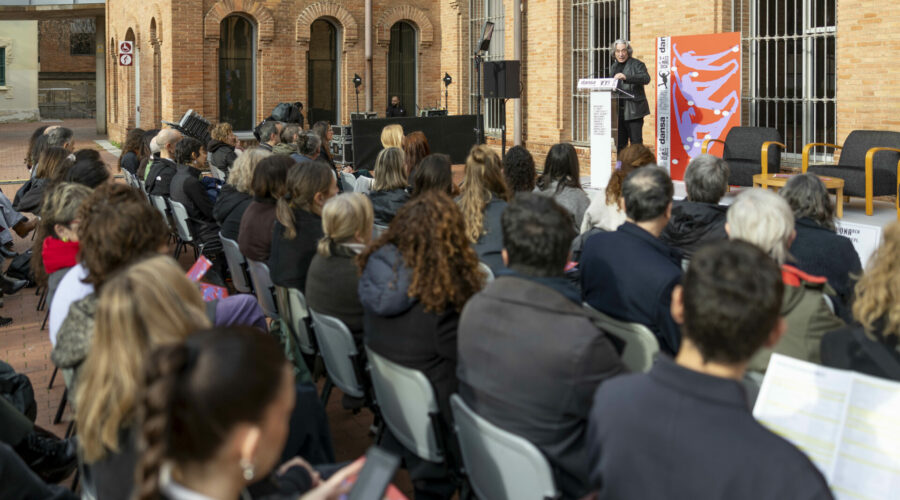New Strava data show that Barcelona is the province in Spain with the most active commuting to work ahead of Madrid and Las Palmas
 Spain is in the top 10 countries with the highest number of active commuters, ahead of the Netherlands, Italy and Belgium.
Spain is in the top 10 countries with the highest number of active commuters, ahead of the Netherlands, Italy and Belgium.
On the occasion of Earth Day 2023, Strava launches the “Around the World in 30 Days” challenge to encourage its community to replace short vehicle trips with 24.9 miles of running, walking or hiking
Stravathe connected fitness subscription platform with a community of over 100 million members, today released new data revealing which provinces in Spain have the most active commutes to work.
After an unprecedented three years, the positive trend in global commuting continues in 2023. The way people live, work and move around towns and cities has changed, and even in recent months, cycling and walking around the world has been further influenced by a global crisis linked to fuel prices and the rising cost of living.
Spain is in the Top 10 of countries with the most active travel on foot or by bicycle to work registered on Strava, ahead of ahead of ahead of the Netherlands, Italy, Belgium. At the national level, Barcelona is the province in the country with the most active walking and cycling trips recorded on the platform, ahead of Madrid, Las Palmas, Balearic Islands, Alicante, Valencia and Málaga. In fact, a report prepared by the Barcelona City Council and the INE shows that only 24% of Barcelona residents drive to work, making it the city where private vehicles are used the least to get to work.
The
Commuters,
i.e, commuters, in other words, people who actively travel to work, in Barcelona travel, on average, 4.8km each way. The average duration of their trips is 25 minutes and 38 seconds. Barcelona thus becomes the world’s third fastest city in the country in the country for
commuting,
comparing the average duration of each trip/average distance of each active commute to work, according to the following ranking:
- Burgos27:14 minutes for an average of 5.9km
- Castellón27:19 minutes for an average of 5.4km
- Barcelona25:38 minutes for 4.8km on average
- Valencia21:28 minutes for 4.1km average
- Zaragoza23:11 minutes for 4.3km average
Compared to areas where it is slower to commute to work, residents of Burgos can move almost twice as fast as those living in the provinces of Lugo, Las Palmas and Malaga. On average, the
commuters
in Huelva travel 3km each way to work, while in Lugo the average active commute is 16.8km.
Globally, there has been an increased uptake of cycling, with Paris leading the way with 97% growth thanks to a
significant investment
in cycling infrastructure:
- Paris (+97%)
- Rio de Janeiro (+62%)
- Berlin (+57%)
- Tokyo (+46%)
- Munich (+41%)
The new data comes from
Strava Metro
The tool provides anonymized active commuting data free of charge to urban planners, advocacy groups and researchers to improve infrastructure investment in key cities across the country. Today, the Strava community in Spain is twice as large as it was in 2019.
By logging an activity on Strava, users anonymously feed the Strava Metro dataset and, in turn, help urban planners and local authorities in their communities understand mobility patterns, identify investment opportunities and assess the impact of infrastructure changes to improve access to active transportation.
This data comes on the occasion of Earth Day (April 22) and in the midst of a challenge launched by Strava Metro that challenges Strava’s community of 100 million users to replace shorter vehicle trips with 24.9 miles of running, walking or hiking to reach the collective goal of a trip around the earth: 24,901 miles over the month of April.
Strava and Strava Metro are encouraging everyone to choose active commuting over vehicle trips to give around the world in 30 days. It is possible to join the challenge through this link and compensate enough vehicle trips to drive around the world 100 times before the end of the month.
About the Challenge
Between April 1 and April 30, select the green Strava Metro map for your active commute and show people that you’re reducing car trips. When 24,901 miles have been reached, all participants will receive a special milestone badge, but that doesn’t mean we have to stop there! If we are able to exceed our goal and collectively replace 2.49 million miles of active commuting, we will have saved 1,006 metric tons of carbon dioxide to the atmosphere. Let’s dream big and give the planet the Earth Day gift it deserves.
About Strava Metro
- The Strava Metro dataset is one of the largest collections of human-driven transportation information.
- Strava Metro provides cities with free access to aggregated, de-identified mobility information to enable smarter infrastructure and urban planning decisions.
- Active transportation is the key to making our cities healthier, happier, more productive and sustainable places.
- Metro works with urban planners, city governments and advocates for safe infrastructure to understand mobility patterns, identify investment opportunities and assess the impact of infrastructure changes, all completely free of charge.
- More than 1,500 communities are improving active commuting with Strava Metro
About Strava
Strava is the leading subscription platform in the center of connected fitness, with more than 100 million active people in 190 countries. The platform offers a holistic view of an active lifestyle, no matter where you live, what sport you love and/or what device you use.
Everyone is welcome on Strava when pursuing an active lifestyle. Join the community, find motivation and discover new experiences with Strava subscription.
Our favorite statistics:
- More than 8 billion activities shared on Strava.
- Active individuals in each country of the world
- 40 million activities shared every week
- More than 30 million segments
- About 3,000 professional athletes on Strava
- Almost 10 billion Kudos last year
- More than 10 million photos and videos shared each week
- Approximately 2,000 agreements with organizations improving their communities with Strava Metro
- +400 employees worldwide, with offices around the world:
- San Francisco, United States (headquarters)
- Berlin, Germany
- Bristol, United Kingdom
- Chamonix, France
- Denver, United States
- Dublin, Ireland
- Vilnius, Lithuania



